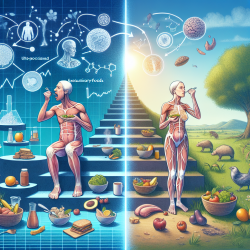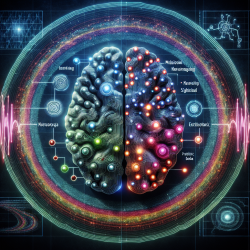Introduction
In the fast-paced world of modern nutrition, the concept of evolutionary diet mismatch is gaining traction. The research article "Unraveling the Evolutionary Diet Mismatch and Its Contribution to the Deterioration of Body Composition" sheds light on how our current dietary habits deviate from those of our ancestors, potentially leading to chronic health issues. This blog explores the key findings of the research and offers actionable insights for practitioners aiming to enhance their nutritional guidance.
The Evolutionary Diet Mismatch
Over millennia, human diets have evolved significantly. Our ancestors thrived on whole foods, which were minimally processed and rich in phytonutrients. In contrast, today's diets are dominated by ultra-processed foods (UPFs) that lack the complex compounds found in whole foods. This shift has resulted in a diminished metabolome, which may contribute to chronic diseases like obesity and type 2 diabetes.
Key Findings from the Research
- Whole foods promote health by providing a diverse range of phytonutrients and other beneficial compounds.
- Ultra-processed foods are lower in essential phytonutrients, which may lead to a less diverse metabolome.
- The evolutionary diet contributed to a more diverse metabolome, which may have supported better health outcomes in early humans.
Implications for Practitioners
As a practitioner, understanding the evolutionary diet mismatch can enhance your ability to guide clients toward healthier eating patterns. Here are some actionable steps:
- Promote Whole Foods: Encourage the consumption of whole foods like fruits, vegetables, lean meats, and whole grains to increase phytonutrient intake.
- Educate on UPFs: Raise awareness about the potential health risks associated with high UPF consumption and guide clients in making informed food choices.
- Personalized Nutrition: Consider individual dietary needs and preferences when recommending dietary changes, emphasizing a balanced intake of whole foods.
Encouraging Further Research
The research highlights the need for further exploration into the impact of dietary patterns on the metabolome and overall health. Practitioners can contribute to this growing body of knowledge by staying informed through ongoing education and participating in research initiatives.
To read the original research paper, please follow this link: Unraveling the Evolutionary Diet Mismatch and Its Contribution to the Deterioration of Body Composition.










